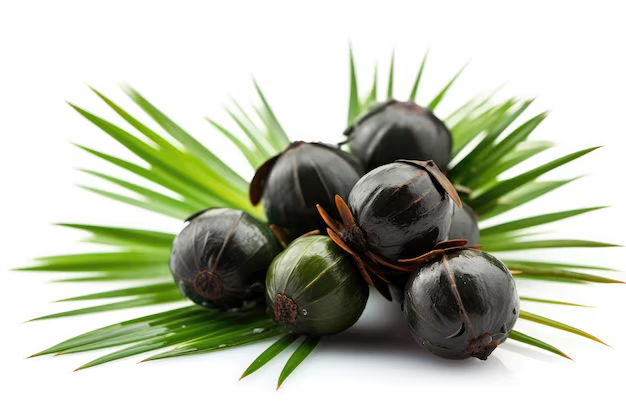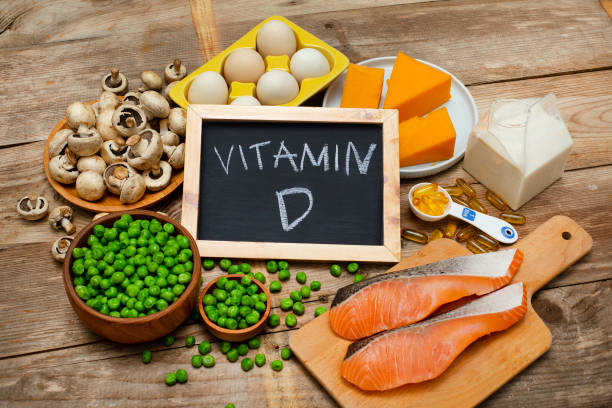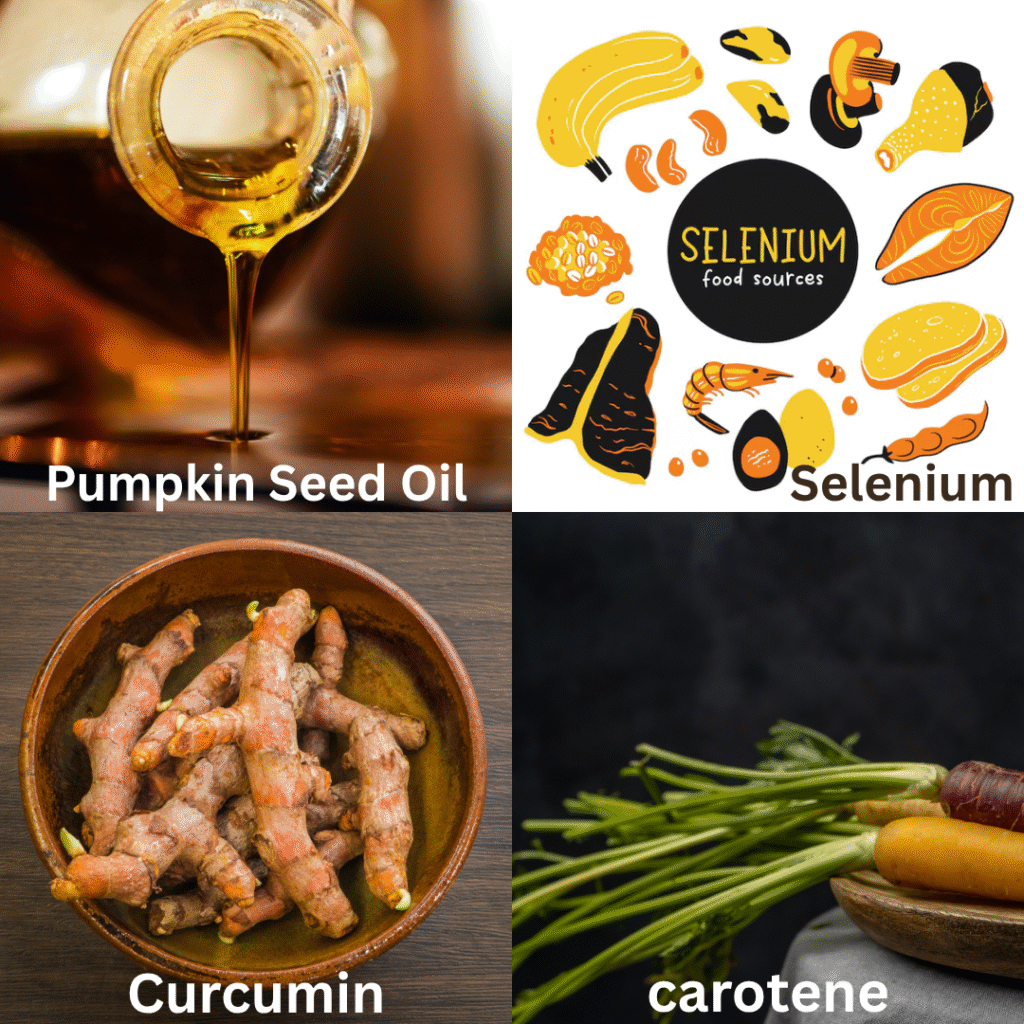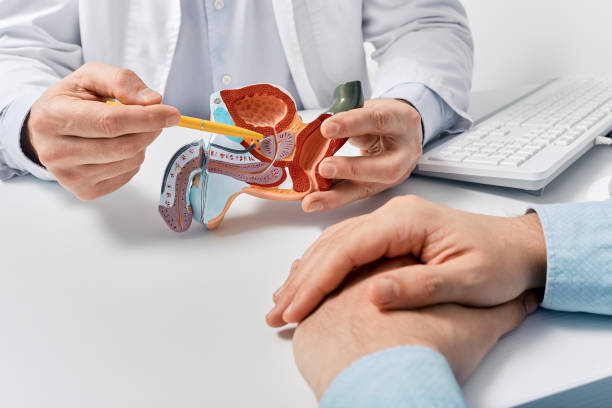Prostate health is an important part of overall well-being for men. The prostate is a small, walnut-sized gland located just below the bladder and in front of the rectum. Its main job is to produce seminal fluid, which helps nourish and transport sperm—making it a key player in male reproductive health.
As men get older, the prostate may undergo changes. It can become enlarged, leading to a condition known as benign prostatic hyperplasia (BPH). Some men may also experience inflammation (prostatitis) or face more serious concerns like prostate cancer. These issues can cause symptoms such as frequent urination, difficulty starting or stopping urination, and even discomfort or pain.
Prostate problems can also affect sexual health and emotional well-being. Since prostate diseases are a major concern in men’s health globally, it’s important to take preventive measures. Maintaining a healthy lifestyle and getting regular checkups can help protect prostate health as men age.
Why Prostate Health Matters for Men’s Well‑being
Urinary and Sexual Health: Prostate health is closely linked to urinary and sexual function. When the prostate becomes enlarged, a condition known as benign prostatic hyperplasia (BPH), it can press against the urethra. This pressure may result in a weak or interrupted urine stream, increased urgency, or frequent nighttime urination. These symptoms can significantly reduce a man’s quality of life. Additionally, inflammation of the prostate or the development of prostate cancer may cause pelvic pain, erectile dysfunction, and emotional distress, further affecting physical and mental well-being.
Fertility and Hormonal Balance: The prostate plays a crucial role in male fertility through its production of seminal fluid, which helps protect and nourish sperm. When prostate health is compromised, sperm function and fertility may decline. Furthermore, many prostate-related conditions are associated with hormonal imbalances involving testosterone and dihydrotestosterone (DHT), which can affect not only reproductive health but also overall hormonal stability in men.

Cancer Risk: Maintaining good prostate health is essential to reducing the risk of prostate cancer—one of the most frequently diagnosed cancers in men worldwide. Although most prostate cancers grow slowly and are not life-threatening, early prevention remains important. Healthy lifestyle practices, including balanced nutrition and supportive vitamins, may help minimize cancer risk and support long-term prostate wellness.
Holistic Well‑Being: Prostate health affects more than just physical functions—it also influences emotional and mental health. Chronic prostatitis and related urinary symptoms can disturb sleep patterns, contribute to chronic discomfort, and lower a man’s confidence in social or professional settings. Addressing prostate issues holistically can help improve mood, restore normal routines, and enhance overall quality of life.
Natural “Prostate Vitamins” & Nutrients Backed by Science
Below are eight key natural compounds—vitamins, minerals, and plant extracts—that research suggests support prostate structure, function, or symptom management.
Saw Palmetto
Saw Palmetto is a popular natural extract often included in prostate vitamins due to its potential to support urinary and prostate health. It is derived from the berries of the Serenoa repens plant and has been traditionally used to help ease symptoms related to an enlarged prostate, especially benign prostatic hyperplasia (BPH).
This plant-based supplement may help reduce frequent urination, improve urine flow, and lessen the discomfort caused by prostate enlargement. It works by influencing hormone levels, particularly by blocking the conversion of testosterone to dihydrotestosterone (DHT), a hormone linked to prostate growth.
As a key ingredient in many prostate vitamins, saw palmetto offers a natural approach to managing prostate symptoms. When used regularly and combined with a healthy lifestyle, it can help support long-term prostate health and promote comfort during aging. Always consult a healthcare provider before starting any supplement.

What it is: Extract from the fruit of the Serenoa repens palm.
Evidence: Commonly used for BPH; thought to inhibit 5‑alpha‑reductase (the enzyme turning testosterone into DHT). Studies are mixed—some show modest urinary improvement; others find no more effect than placebo
Takeaway: Non‑toxic and widely used, but benefits may be small. Choose third‑party tested brands.
Beta‑Sitosterol
Beta-Sitosterol is a plant-based compound found in fruits, vegetables, nuts, and seeds. It is commonly used in prostate vitamins for its potential to improve urinary function and support overall prostate health, especially in men experiencing symptoms of benign prostatic hyperplasia (BPH).
This natural substance may help reduce inflammation and improve the strength of urine flow. It is believed to work by enhancing bladder control and lowering levels of DHT, a hormone that contributes to prostate enlargement. Men using beta-sitosterol often report fewer bathroom trips, especially at night.
As a trusted ingredient in many prostate vitamins, beta-sitosterol offers a gentle yet effective option for those looking to manage urinary problems linked to prostate issues. When taken regularly, it may help promote comfort, reduce urinary discomfort, and support a healthier quality of life as men age.
What it is: Plant sterol found in nuts, seeds, and vegetables.
Evidence: A meta‑analysis of 519 men found a ~35% reduction in urinary symptoms and improved peak flow
Takeaway: Effective for BPH-related urinary issues; well‑tolerated and often included in multicomponent supplements.

Pygeum africanum
Pygeum africanum is an herbal extract taken from the bark of the African cherry tree. It is widely used in prostate vitamins for its ability to support urinary health and reduce inflammation in the prostate. Traditionally, it has been used to help relieve symptoms of prostate enlargement and promote better bladder function.
This natural remedy may help reduce the frequency of nighttime urination, ease discomfort during urination, and improve urine flow. It contains plant compounds that are thought to reduce swelling and improve overall prostate function. Pygeum africanum is especially helpful for men dealing with early signs of benign prostatic hyperplasia (BPH).
As a valuable ingredient in many prostate vitamins, Pygeum africanum offers a natural way to support aging male health. Regular use, combined with a balanced lifestyle, may help maintain prostate comfort and reduce common urinary issues.
What it is: Bark extract from the African cherry tree.
Evidence: Clinical studies show reduced nighttime urination by ~19% and increased peak flow by ~23%
Takeaway: Well‑researched, safe, ideal when combined with saw palmetto and beta‑sitosterol.
Stinging Nettle Root

Stinging Nettle Root is a natural plant extract often included in prostate vitamins for its potential to ease urinary problems linked to prostate health. While the plant’s leaves are used for different purposes, the root specifically supports men facing symptoms of an enlarged prostate, such as difficulty urinating or frequent bathroom visits.
This herbal remedy may help reduce inflammation in the prostate and improve bladder function. It is believed to work by interacting with certain hormones in the body, especially those connected to prostate growth. When used consistently, it may relieve pressure on the bladder and promote a more normal flow of urine.
As a key component in many prostate vitamins, stinging nettle root offers a gentle yet effective approach to maintaining prostate wellness. It is often combined with other natural ingredients to provide broad support for aging men experiencing urinary or hormonal changes.
What it is: Extract from Urtica dioica roots.
Evidence: Anti-inflammatory and anti-DHT; combined with saw palmetto, shown to reduce BPH symptoms by ~51% over 6 months
Takeaway: Useful in synergistic blends; look for root extract.
Zinc
Zinc is an essential mineral that plays a vital role in many body functions, especially in maintaining a healthy immune system and supporting male reproductive health. It is commonly found in prostate vitamins because the prostate gland naturally contains high levels of zinc, which are needed for proper functioning.
Low levels of zinc in the body have been linked to prostate issues, including inflammation and enlargement. Zinc may help reduce the risk of prostate problems by regulating hormone levels and supporting tissue repair. It also has antioxidant properties that help protect the prostate from cell damage.
As a trusted ingredient in prostate vitamins, zinc supports not just prostate health but also overall well-being in men. Regular intake of zinc through supplements or a healthy diet may promote better urinary flow, reduce discomfort, and help maintain the normal size and function of the prostate gland.
What it is: Essential trace mineral, highest concentration in prostate tissue.
Evidence: Low zinc linked to higher BPH and cancer risk; supplementation may reduce prostate enlargement risk
Takeaway: Ensure daily intake (11–15 mg RDA); avoid mega-doses (>40 mg) to prevent side effects.
Vitamin D

Vitamin D is a crucial nutrient that supports many body systems, including bone health, immune function, and hormonal balance. It also plays an important role in maintaining prostate health, which is why it is often included in prostate vitamins for men.
Research suggests that low levels of vitamin D may be linked to an increased risk of prostate problems, including inflammation and abnormal cell growth. This vitamin helps regulate cell activity and may reduce the risk of prostate enlargement or other long-term issues. It also supports immune defenses, which can help the body manage inflammation.
Included in many prostate vitamins, vitamin D offers natural support for aging men. Getting enough vitamin D through sunlight, diet, or supplements can help maintain a healthy prostate, reduce urinary symptoms, and support overall wellness. It is especially important for those who spend little time outdoors or have limited sun exposure.
What it is: Fat-soluble vitamin produced via sun exposure.
Evidence: Low vitamin D linked to BPH, prostate cancer; modulates cell growth, immune function
Takeaway: Maintain adequate levels (1,000–4,000 IU/day as needed); get tested to personalize dose.
Lycopene
Lycopene is a powerful antioxidant found in red fruits and vegetables, especially tomatoes. It is widely known for its potential to support heart health, but it also plays a key role in maintaining prostate health. Because of this, lycopene is often added to prostate vitamins to help protect against common prostate issues.
This natural compound may help reduce the risk of prostate enlargement and prostate cancer. Its antioxidant properties protect cells from damage caused by free radicals, which can lead to inflammation and abnormal growth in the prostate gland. Lycopene also supports healthy cell function and hormone balance.
As an important ingredient in many prostate vitamins, lycopene offers targeted support for men’s health. Regular intake through diet or supplements may help reduce urinary symptoms, support normal prostate size, and promote long-term wellness for aging men. Including lycopene can make prostate care more complete and effective.
What it is: Red pigment/carotenoid in tomatoes, watermelon.
Evidence: Antioxidant anti-inflammatory; higher lycopene intake associated with ~30% lower risk of advanced prostate cancer
Takeaway: Focus on cooked tomato products or a supplement (10–30 mg/day).

Green Tea Extract (EGCG)
Green Tea Extract (EGCG) is a natural compound found in green tea leaves, known for its strong antioxidant and anti-inflammatory properties. EGCG stands for epigallocatechin gallate, one of the most active components in green tea. It is commonly used in prostate vitamins to help protect the prostate gland and support overall male health.
EGCG may reduce the risk of prostate enlargement and cancer by fighting oxidative stress and reducing inflammation. It helps regulate cell growth and may prevent abnormal cell changes in the prostate. This makes it especially useful for aging men who want to maintain healthy prostate function.
Included in many prostate vitamins, green tea extract provides natural protection and promotes better urinary health. Its powerful plant-based compounds help the body stay balanced and resilient, making it a smart choice for those seeking natural support for prostate wellness over time.
What it is: Catechin-rich extract from green tea.
Evidence: Reduces inflammation; studies show 34% relief in urinary symptoms after 12 weeks and up to 90% lower prostate cancer risk
Takeaway: Use a standardized EGCG supplement (200–400 mg/day), or drink multiple cups of green tea daily.
Other Noteworthy Nutrients
Pumpkin Seed Oil is a natural source of essential nutrients, including zinc and healthy fatty acids, which are important for maintaining prostate health. It is often found in prostate vitamins due to its potential to improve urinary symptoms. In a clinical study, men who used pumpkin seed oil for 12 months experienced a 41% reduction in International Prostate Symptom Score (IPSS), highlighting its long-term benefits for urinary comfort and prostate support.
Selenium and Vitamin E were once considered promising nutrients for prostate cancer prevention. However, findings from the SELECT trial showed that neither nutrient effectively reduced cancer risk. In fact, high doses of vitamin E were associated with an increased risk, which raised concerns about its use. Still, these nutrients may support general immune health when taken in safe amounts as part of a balanced prostate vitamins formula.

Curcumin, the active ingredient in turmeric, is known for its strong anti-inflammatory properties. Studies suggest it may help reduce prostate-specific antigen (PSA) levels and support prostate function. Safe for use in high doses (up to 8 grams per day), curcumin is commonly included in prostate vitamins for its natural ability to ease inflammation and promote overall wellness.
Other supportive compounds include bee pollen, ryegrass pollen extracts, omega-3 fatty acids, and beta-carotene. These natural elements may offer additional health benefits, supporting hormone balance, reducing oxidative stress, and enhancing the effectiveness of comprehensive prostate vitamins designed for long-term male health.
Sample Spotlight: Prostate‑Targeted Supplement Combo
When choosing effective prostate vitamins, it’s important to look for a formula that combines key ingredients known to support prostate health and urinary function. A good product should include 320 mg of saw palmetto, which helps reduce symptoms of prostate enlargement, and 60–130 mg of beta-sitosterol to support urine flow and hormonal balance.
Additional essential nutrients include 15–30 mg of zinc to support immune and reproductive health, 100 mg of pygeum for reducing inflammation, and 120 mg of nettle root to support bladder comfort. These ingredients work together to promote better prostate function and ease urinary discomfort.
To strengthen your daily prostate care, consider adding lycopene and vitamin D for antioxidant and immune support. Always choose prostate vitamins that are tested for quality and safety to ensure you’re getting reliable and effective daily support.
Conclusion
Maintaining optimal prostate health is essential for overall well-being in men, especially as they age. The prostate plays a vital role in reproductive function and urinary health. As men grow older, they may face issues such as benign prostatic hyperplasia (BPH), prostatitis, or even prostate cancer, making preventive care a crucial part of men’s health strategies.

One effective approach to support prostate health is through nutrition, particularly by incorporating prostate vitamins into the daily routine. These include essential nutrients like zinc, vitamin D, and antioxidants such as lycopene and green tea extract. These vitamins work to reduce inflammation, regulate hormones, and protect against oxidative stress that can damage prostate cells.
Choosing natural prostate vitamins and supplements can help reduce symptoms like frequent urination, nighttime trips to the bathroom, and lower the risk of prostate enlargement. Along with a balanced diet and regular exercise, these nutrients play a key role in maintaining long-term prostate function.
FAQs
Q.1 What are prostate vitamins used for ?
Prostate vitamins are supplements designed to support prostate health, reduce urinary symptoms, and maintain hormonal balance in men, especially as they age.
Q.2 Who should take prostate vitamins ?
Men over the age of 40, or those experiencing urinary issues like frequent urination or weak urine flow, may benefit from prostate vitamins as part of a daily wellness routine.
Q.3 Are prostate vitamins safe to take daily ?
Yes, most prostate vitamins are safe for daily use when taken as directed. However, it’s always best to consult with a healthcare provider before starting any new supplement.
Q.4 How long does it take to see results ?
Results vary, but many men notice improvements in urinary flow and comfort within a few weeks to a few months of consistent use.
Q.5 Can prostate vitamins prevent cancer ?
While prostate vitamins support general prostate health, they are not a cure or guaranteed prevention for prostate cancer. A healthy lifestyle and regular screenings remain important.


